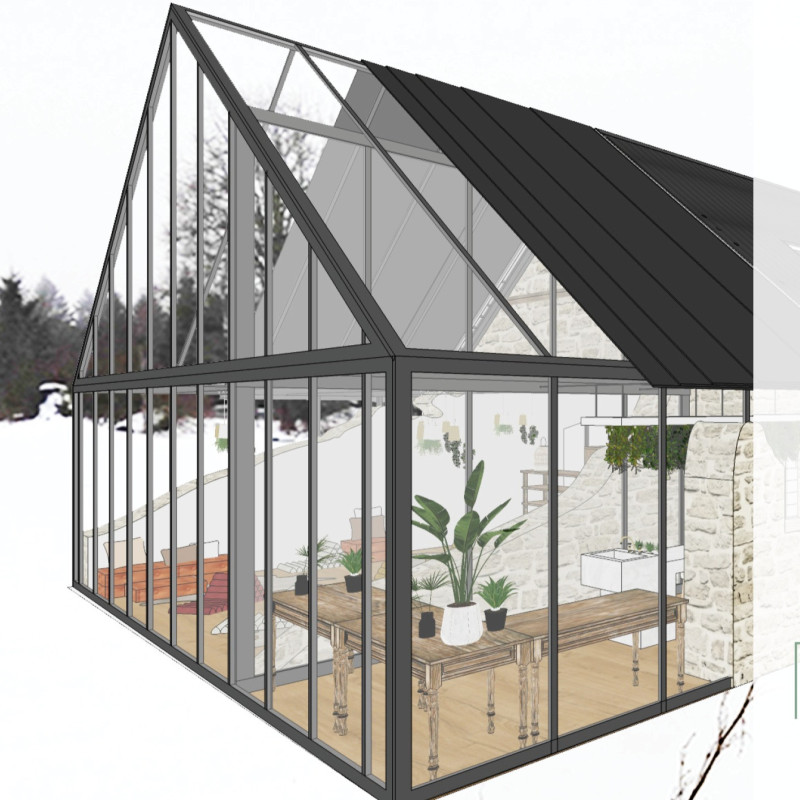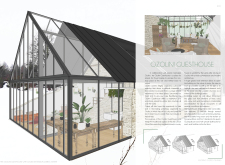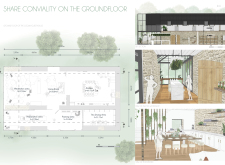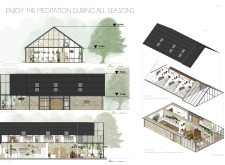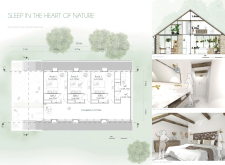5 key facts about this project
Unique Architectural Elements
The most distinctive feature of the Ozolini Guesthouse is the glazed winter garden, which forms an essential part of the extension. This design element allows for unobstructed views of the surrounding forest, ensuring a seamless visual connection between the interior spaces and nature. The incorporation of natural light is maximized, promoting a warm and inviting ambiance throughout. The strategic arrangement of functional spaces, such as the meditation area and tea drying room, facilitates visitor engagement with both relaxation and local cultural practices, setting the project apart from typical hospitality designs.
Material Selection and Sustainability
The choice of materials reflects a commitment to sustainability and local craftsmanship. Key materials include local stone, which serves as the primary structural component, and natural wood, which is used extensively in both the building’s framework and interior design. These materials not only provide durability but also enhance the aesthetic quality, promoting an organic feel that resonates with the surrounding environment. The use of glass in the building’s extension further underscores the design’s emphasis on transparency and connection to nature, making the guest experience more immersive.
The Ozolini Guesthouse is thoughtfully designed with various functional spaces that accommodate guests comfortably. The ground floor features an open living room, an expansive kitchen designed for communal cooking, a meditation area tailored for relaxation, and a tea drying space offering opportunities for guests to engage in local cultural traditions. On the upper level, the guest accommodations emphasize privacy and comfort, with shared bathrooms designed to support the overall functionality of the space.
For a more detailed understanding of the project’s architectural plans, sections, and design ideas, readers are encouraged to explore the project presentation further. The Ozolini Guesthouse stands as an exemplary model of integrating contemporary architectural ideas with traditional ideals, ensuring a unique experience for its visitors while respecting the environment.


